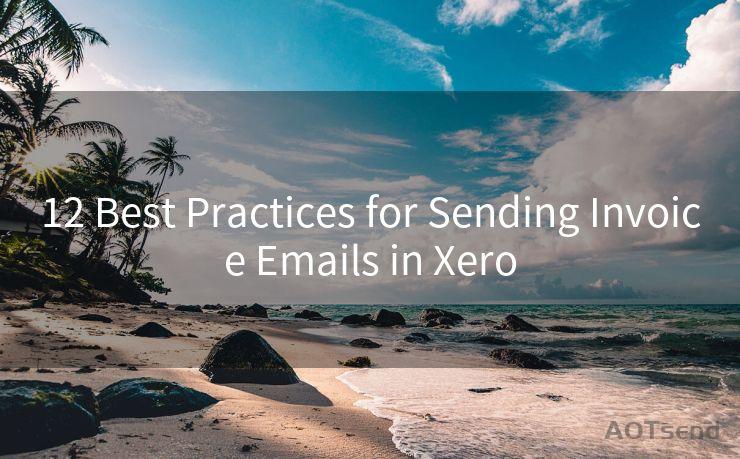12 Best Practices for Sending Invoice Emails in Xero




When it comes to managing finances and invoicing, Xero is a popular choice for businesses worldwide. Sending invoice emails through Xero is a crucial part of the billing process, and there are certain best practices that can help you maximize the efficiency and effectiveness of these emails. Here are the top 12 best practices for sending invoice emails in Xero.
1. Clear and Professional Subject Line
Craft a subject line that is clear, concise, and professional. It should immediately convey the purpose of the email, which is to deliver an invoice. For example, “Invoice #XYZ123 from [Your Company Name]” is a straightforward and informative subject line.
2. Personalized Greeting
Start your email with a personalized greeting, addressing the recipient by their name. This adds a personal touch and helps to establish a connection with the client.
3. Invoice Details and Summary
Include a brief summary of the invoice, such as the invoice number, date, and the total amount due. Provide a link to the invoice within Xero or attach a PDF version for easy access.
4. Clear Payment Instructions
Outline clear payment instructions, including the payment deadline, payment methods accepted, and any relevant banking details. Make it as easy as possible for your clients to pay.
5. Itemized Invoice
Ensure that the invoice is itemized, listing each service or product provided, along with its corresponding price. This transparency builds trust and reduces confusion.
6. Contact Information
Provide your contact information, including a phone number and email address, so clients can easily reach you with any questions or concerns.

7. Professional Tone
Maintain a professional tone in your email. Avoid colloquial language and stick to a formal, yet friendly, writing style.
8. Thank Your Client
Always thank your client for their business. A simple “Thank you for your business” at the end of the email goes a long way in fostering good client relations.
🔔🔔🔔
【AOTsend Email API】:AOTsend is a Managed Email Service for sending transactional emails. Support Email Types: reminders, authentication, confirmations, notifications, verification codes, invoices, password resets, account activations, billing statements, two-factor authentication (2FA), and one-time passwords (OTP) emails, etc. $0.28 per 1000 Emails. 99% Delivery, 98% Inbox Rate.
You might be interested in:
Why did we start the AOTsend project, Brand Story?
What is a Managed Email API, How it Works?
Best 25+ Email Marketing Platforms (Authority,Keywords&Traffic Comparison)
Best 24+ Email Marketing Service (Price, Pros&Cons Comparison)
Email APIs vs SMTP: How they Works, Any Difference?
9. Call to Action
Include a clear call to action, such as “Please review and process this invoice at your earliest convenience.” This guides the recipient on what to do next.
10. Follow-Up Plan
Have a plan to follow up on unpaid invoices. Set a reminder to check on the status of the invoice if payment is not received by the due date.
11. Branding and Design
Customize your invoice template to reflect your brand identity. Use your company logo, colors, and fonts to create a professional and consistent look.
12. Test and Review
Regularly test and review your invoice email process to ensure everything is working smoothly. Check for any glitches or errors that may affect the client experience.
By following these 12 best practices for sending invoice emails in Xero, you can streamline your billing process, improve client communication, and enhance your brand image. Remember to always keep your invoices clear, professional, and easy to understand. This not only helps in getting paid promptly but also fosters strong relationships with your clients.




Scan the QR code to access on your mobile device.
Copyright notice: This article is published by AotSend. Reproduction requires attribution.
Article Link:https://www.mailwot.com/p3889.html



